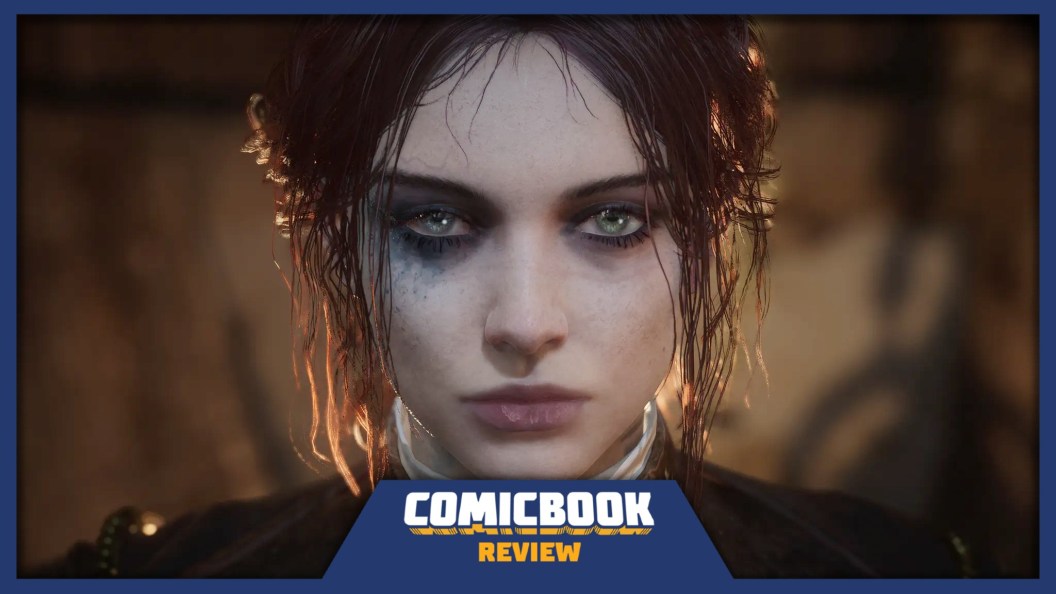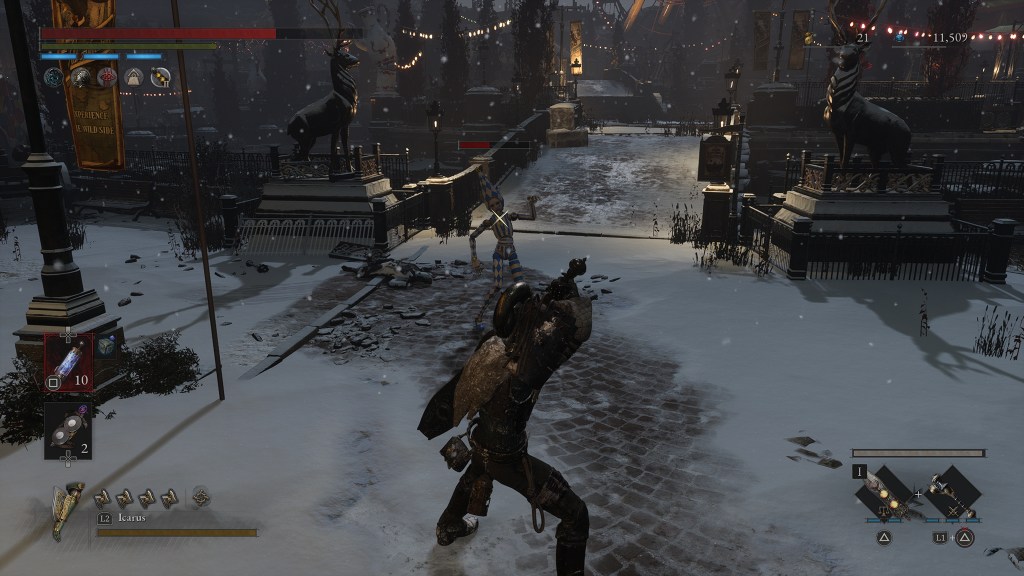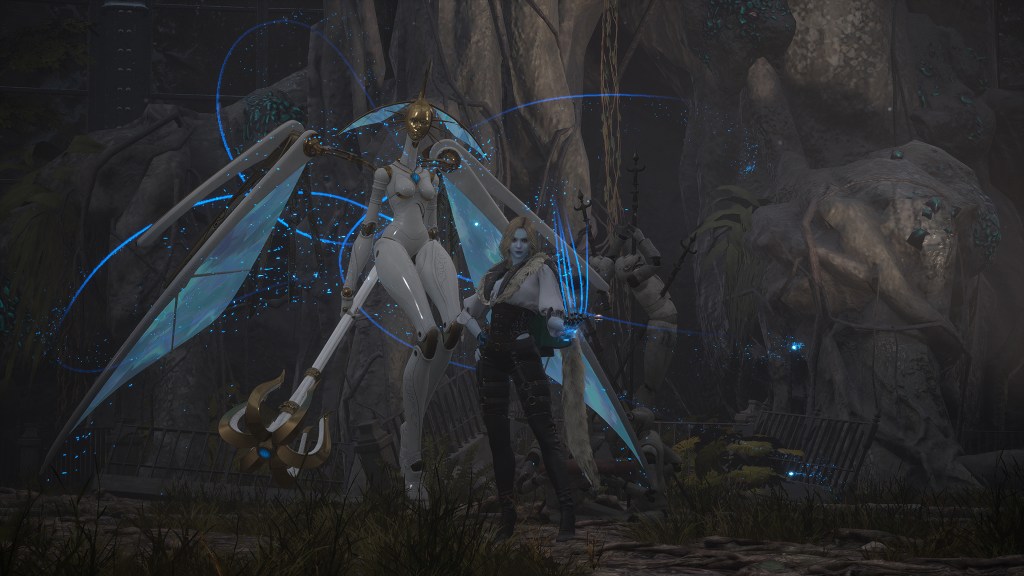
Lies of P proved it could go toe-to-toe with FromSoftware’s best Soulslikes when it originally came out in 2023. The tight combat, cohesively designed levels, and tough boss fights meant it launched as one of the genre’s elite titles. However, From’s reign is not something that’s exclusive to its release day offerings, as its legacy of creating acclaimed DLC is an underrated way the team has remained on top. Developers Neowiz and Round8 Studio are attempting to compete with FromSoft in this arena as well with the beefy expansion, Lies of P: Overture. And unsurprisingly, Overture continues the excellence of the main game, cementing its status as a true Soulslike titan.
Lies of P’s swordplay remains the centerpiece that grounds the entire experience. Combat straddles the line almost flawlessly between fast action and more deliberate play, meaning acting quickly is just as important as managing stamina. Its fantastic parry is incredibly responsive and provides satisfying feedback with its loud, clangy sound effects that clearly demonstrate how devastating it is when used effectively. Overture’s additions only highlight these strengths.

RELATED: Lies of P Getting Easy Difficulty Modes, Director Explains Why
Its arsenal of new weaponry is as wide as it is rewarding, a collection that includes Wolverine-like claws, a greatsword that banks explosive charges through parries, an electricity-based blade, a poison-laced club with a golden snake coiled around it, a gunblade that works at close and medium ranges, and a special saber that has the most over-the-top, anime-like special move and Fatal Attack in the entire game. It only has two new Legion Arms, but the quality of both makes up for the quantity. The double-barrel shotgun called Cataclysm is a devastating tool for those who can time out its blasts — and utilize the heavy recoil as a flashy evasive dodge — while the Icarus Legion Arm’s spinning blades are useful for chipping away at hordes or immobile foes.
These armaments, as well as the four other weapons not listed here, are all wildly different and don’t feel like carbon copies of the weapons from the base game. Just about all of them are more visually striking and creative than said launch-era weapons and demonstrate how the ante has been upped in this DLC. It’s difficult to only pick a few to specialize in and, through a roundabout way, demonstrates why weapon-specific upgrades that use finite resources usually aren’t ideal upgrade systems because of how they narrow the possibilities.
Great weapons are little without great enemies to stick them into, and Overture delivers here, too. The variety is impressive and ensures each one of its detailed stages has a fitting bestiary with all-new patterns to learn. The mutated primates, kangaroos, and elephants in the zoo have their own attacks and tempos, as do the more clownish puppets stuck at the circus and the grotesque, tentacle-laden sharks on the frigid coastal ice sheets. Even the handful of returning enemy types have gone through cosmetic changes to better fit their environment, like the basic infected drones that now have new tourist duds in the zoo. It’s all cohesively put together to make this chunk of Krat feel more believable with the added benefit of giving players a constant stream of satisfying new challenges to overcome.

Boss fights are the true star in Lies of P: Overture, though, and many of them match or exceed the standard set in the base game. As was the case with the basic foes and mini-bosses, their diversity is noteworthy, but they also excel in execution. One is a clever two-on-one fight that tests how players manage a pair of threats, but avoids being cheap due to how the flashing colors distinguish who is going on offense. Another is a tense duel that requires perfect parrying and surprisingly morphs into a more animalistic bout in the latter half.
Each one has some flair that makes them more than just standard beasts to kill; they’ve earned the privilege of a massive health bar with a name attached to it. Finally landing the killing blow is exhilarating each time because of how it is earned through dedication and skill, and the pulse-pounding celebration that follows is the most raw indication of a fantastic boss fight. This high level of quality makes it all the more noticeable when its carnival level just ends without a proper climactic battle and points out how the very first boss struggles because of its relative lack of visual clarity during attacks.

Lies of P’s mechanics deserve a vast share of the praise, but its narrative and world design still do some of the lifting in Overture. Levels have a more diverse range of biomes — aside from the aforementioned animal-ridden zoo, there are also snow-covered outdoor areas and a vast greenhouse filled with plants — and the visual variety gives Overture its own style over the base game.
The way it weaves the story through these settings, though, is equally important. While it can be difficult to mentally sift through all the factions and characters and recall their intertwining relationships, Overture is able to cut through most of the noise by having an intriguing central mystery concerning the fabled Legendary Stalker. She’s only spoken about briefly in the base game and following her tracks fills in some backstory and leads to a wild goose chase that gets more tragic with each new nugget of information. The intimate knowledge it requires players to have regarding certain relationships and P’s inability to speak lessens some of the dramatic finale’s impact, but it’s paced out decently enough and rewards those who have sucked up Lies of P’s dense yet well-spun narrative.
Lies of P: Overture’s ability to augment and improve goes beyond the story; it’s the ideal companion to just about every part of the base game. Its wealth of new enemy types present fresh new obstacles to overcome, the stages they inhabit are intricately detailed and narratively justified, and its boss battles hit or exceed the high standard set in the original release. Even though an overture is the musical portion that comes before a symphony or performance, Overture is a remarkable note to go out on and raises the bar even higher for the upcoming sequel.
Rating: 4.5 out of 5
Lies of P: Overture is available now for Xbox Series X|S, PlayStation 5, and PC. A review copy for PS5 was provided by the publisher for the purpose of this review.
The post Lies of P: Overture Review: Lying With the Greats appeared first on ComicBook.com.
